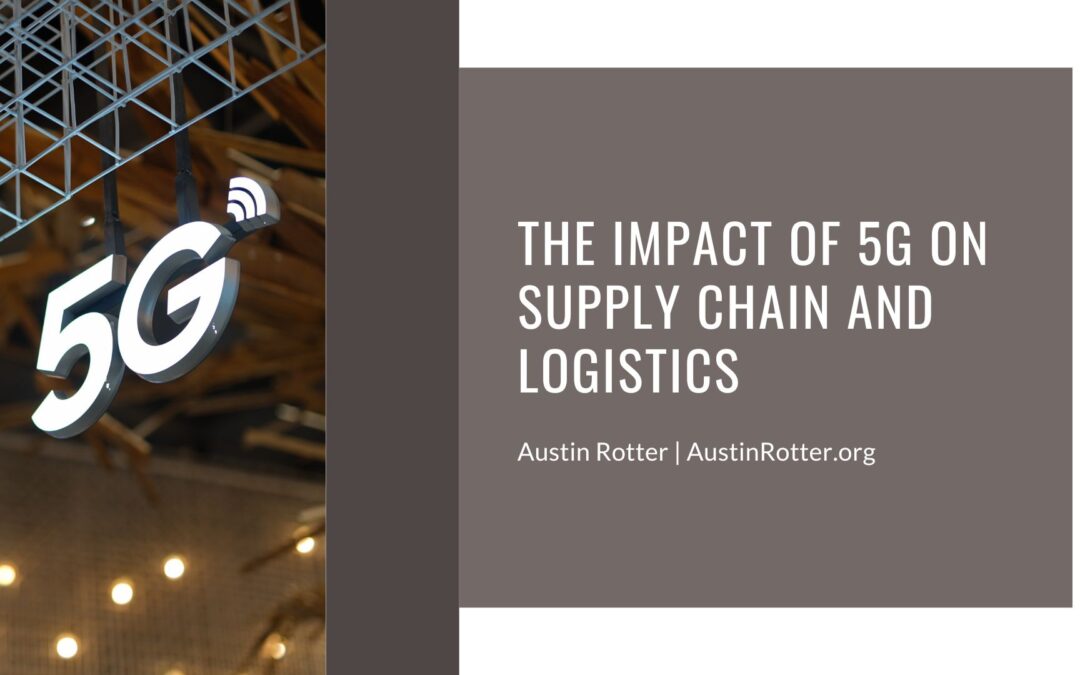The emergence of 5G technology is poised to revolutionize various industries, and supply chain management is no exception. With its promise of ultra-fast speeds, low latency, and massive connectivity, 5G technology has the potential to transform the way logistics operations are conducted, from warehouse management to last-mile delivery. In this blog, we’ll explore the profound impact of 5G on supply chain and logistics and how it is reshaping the future of global trade and commerce.
- Enhanced Connectivity and Communication
One of the most significant advantages of 5G technology is its ability to provide ultra-fast, reliable connectivity across a wide range of devices and sensors. This means improved communication between stakeholders, from manufacturers and suppliers to transportation carriers and end customers, in the supply chain and logistics sector. With 5G-enabled devices and sensors, real-time data transmission and communication enable seamless collaboration, faster decision-making, and greater visibility into the supply chain.
- IoT and Smart Logistics
The Internet of Things (IoT) is crucial in enabling smart logistics solutions that leverage 5G technology. By connecting various devices, sensors, and assets throughout the supply chain, 5G enables real-time tracking, monitoring, and optimization of logistics operations. From RFID tags and GPS trackers to smart sensors and drones, IoT-powered logistics solutions powered by 5G technology enhance efficiency, accuracy, and transparency in inventory management, asset tracking, and transportation logistics.
- Autonomous Vehicles and Drones
5G technology unlocks the potential for autonomous vehicles and drones to revolutionize transportation and logistics operations. With low latency and high bandwidth, 5G enables real-time communication and data exchange between autonomous vehicles, traffic management systems, and centralized control centers. Autonomous trucks, drones, and delivery robots with 5G connectivity can navigate routes, avoid obstacles, and optimize delivery routes, leading to faster, safer, and more efficient last-mile delivery.
- Augmented Reality (AR) and Virtual Reality (VR)
5G technology enhances the capabilities of augmented reality (AR) and virtual reality (VR) applications in the supply chain and logistics sector. AR and VR solutions powered by 5G enable immersive training simulations, remote maintenance, and visualization of complex logistics processes. For example, warehouse workers can use AR glasses with 5G connectivity to receive real-time instructions, locate inventory, and perform tasks more efficiently, improving productivity and accuracy.
- Predictive Analytics and AI-driven Insights
With its high-speed data transmission and processing capabilities, 5G technology enables advanced analytics and artificial intelligence (AI) algorithms to derive actionable insights from large volumes of data in real-time. Predictive analytics powered by 5G can anticipate demand fluctuations, optimize inventory levels, and mitigate supply chain disruptions before they occur. AI-driven insights enable smarter decision-making, proactive risk management, and continuous optimization of supply chain processes.
The adoption of 5G technology is poised to revolutionize supply chain and logistics operations, unlocking new opportunities for efficiency, agility, and innovation. From enhanced connectivity and communication to IoT-powered smart logistics solutions, autonomous vehicles, augmented reality, and predictive analytics, 5G technology is reshaping the future of global trade and commerce. As businesses embrace 5G-enabled technologies and solutions, they can gain a competitive edge, drive operational excellence, and deliver superior customer experiences in an increasingly connected digital world. By leveraging the transformative power of 5G, supply chain and logistics organizations can navigate the complexities of today’s global marketplace and build a more resilient, agile, and sustainable supply chain ecosystem for the future.
